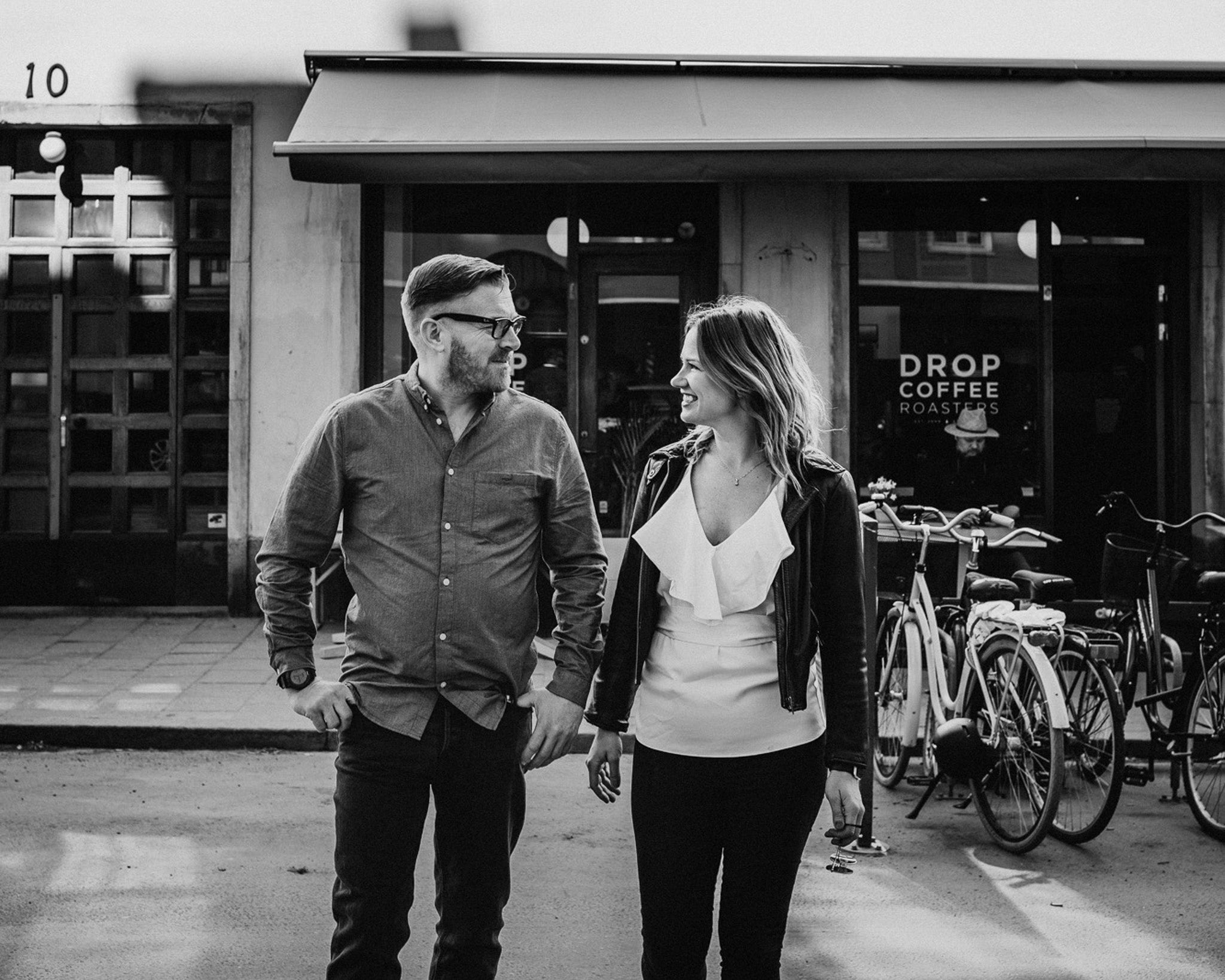La Pira, Red Honey Caturra, 2018
This is the very first time we have coffee from Finca La Pira, after many years of visiting the breath-taking farm in Tarrazú. At La Pira, Carlos Ureña Ceciliano is working with mainly biodynamic guidelines combined with his science and accuracy. The Red Honey of the Caturra is first frozen by rainwater overnight before the skin is chopped off in the pulper with 75% of the mucilage left on the beans when drying. As the sugars in the mucilage crystallises, it gives another kind of sweetness to the cup, reminding of pink apple. The coffee from La Pira brews a crisp cup with a silky mouthfeel. Flavour notes of pink apple, jasmine, white sugar and a finish of black tea.
About Carlos Ureña Ceciliano
How I have wished to ever sit here and write a spread sheet for this coffee. There are people you meet in coffee that you know from the first second you meet them, that you want to work with them. Sometimes it just takes a few years. This year we got a limited amount(just 300kilos) of this coffee. I will try not to drink it all myself.
Carlos is an interesting mixture of silence and biodynamic. He is going out in the morning to hear where the birds are singing, telling him what is going on where among the coffee trees, analyzing the farm by nature. What birds are where gives him an indicator of ripeness, flowering and challenges at the farm. Visiting La Pira and walking the farm, you never want to leave. You want to hear more about Carlos harvesting methods and turn upside down on more theories. Carlos is also roasting the coffee himself, delivering it in cooling bags to the local café as that is the way he prefers the coffee being kept fresh.
Sustainability
After inheriting the family farm, Carlos worked for many years as a certified organic coffee producer, but he realized doing so was just not possible on this farm. Organic coffee is good, but not possible for everyone. The yield was very, very affected by leaf rust a few years back. So Carlos looked for alternatives, while still holding organic and biodynamic principles very close to his heart. For instance, instead of using chemicals to control the weeds, sheep roam freely amongst the coffee plants and eat the weeds (and strangely leave the coffee plants alone). They work as automatic and mobile 'fertilisation units' (nature’s a wonderful thing). This has eliminated the need for herbicides. This is the kind of thinking Carlos has about coffee.
Salary for pickers are generally good in Costa Rica, but many farmers are using workers from neighbouring countries, paying cheaper salaries and sometimes working harder and better living conditions during the harvest. Carlos is using local workers and paying the workers over the government established prices.
About the Red Honey process
Honey process means that the pulp of the coffee cherry has been removed by pulping the coffee, but the mucilage has remained while drying instead of washing it off as in the washed process. The mucilage is very sticky and honey-like, hence the name. White honey just indicates how much of mucilage that is left on the beans, red honey being almost all of the mucilage is left on the bean, or about 75% of it.
Last time we visited, Carlos had improved his resting time of the cherries before processing. Carlos had, inspired by Michelin chefs, done research on the idea of freezing the mucilage before chopping off the outer skin in the pulper. The Red Honey of the Caturra is first frozen down over night by rain water before the skin is chopped off in the pulper. For the Red Honey about 75% of the mucilage is left on the bean when the coffee is drying. As the sugars crystallise this gives another kind of sweetness to the cup, reminding of pink apple.
Short facts of the Red Honey Caturra from La Pira
Farm: Finca La Pira
Producer and owner: Carlos Ureña Ceciliano
Region: Tarrazú
City: Santa María de Dota
Farm size: 7 hectares
Altitude: 1,650 m.a.s.l.
Harvested: Mid-January to February 2018
Varietal: Caturra
Processing system: Red Honey process. Carlos is freezing down the mucilage before chopping off the pulp of the coffee cherry and drying with 75% of the mucilage left on the beans for about 25 days on raised beds which are covered up overnight.
Flavour profile: A crisp cup with notes of pink apple. Light to medium body. A hint of raspberry, sweetness of candy-floss and a finish of black tea.
